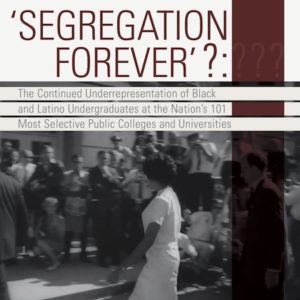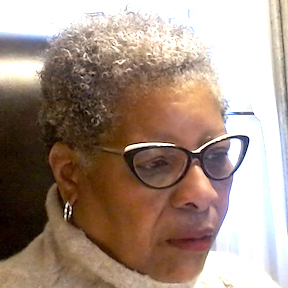 A new report from The Education Trust finds that among the 101 most selective state-operated colleges and universities, most enroll a smaller percentage of Black students today than they did 20 years ago.
A new report from The Education Trust finds that among the 101 most selective state-operated colleges and universities, most enroll a smaller percentage of Black students today than they did 20 years ago.
Each of the 101 selective public colleges and universities was given a grade relating to the ratio of Black enrollments compared to the percentage of Blacks in the college-age population of the state. For example, at West Virginia University, 4.5 percent of the students are Black whereas aAfrican Americans make up 6.5 percent of the state’s college-age population. This produces a ratio of 71 percent, giving the university a grade of C.
Only 10 percent of the 101 state-operated colleges and universities received a grade of A or B. More than three quarters of these institutions received a grade of F.
Only a few of these top-ranked colleges stood out for equitable enrollment of Black and Latino students. The University of Albany topped the list for enrolling Black students in representative numbers. While 16 percent of college-age New York residents are Black, 17 percent of students at the University at Albany are Black. In contrast, African Americans make up 5.8 percent of the students at the University of Delaware but 27 percent of the state’s college-age population. This produces a ratio of 22 and a grade of F.
The Education Trust recommends state universities adopt the following procedures to increase their percentages of Black students:
- Adopt goals to increase access
- Increase access to high-quality guidance counselors
- Use race more prominently in admissions decisions
- Rescind state bans on affirmative action
- Increase financial aid to Black and Latino students
- Alter recruitment strategies
- Improve campus racial climates
- Use outcomes-based funding policies equitably
- Leverage federal accountability
- Reduce the role of standardized testing and/or consider making tests optional
The full report, Segregation Forever: The Continued Underrepresentation of Black and Latino Undergraduates at the Nation’s 101 Most Selective Public Colleges and Universities, may be downloaded by clicking here.










These recommendations make very little sense. The principal underlying problem is not even mentioned: the breakdown of the traditional two-parent household, which has led to generations of wayward boys and emotionally unstable girls.
Strengthen the family and you will see a substantial increase in the number of students entering universities.
I agree with you, Ewart. In addition, I think many issues need to be addressed at the K-12 level. By the time a child is in high school, the clay is almost dry.